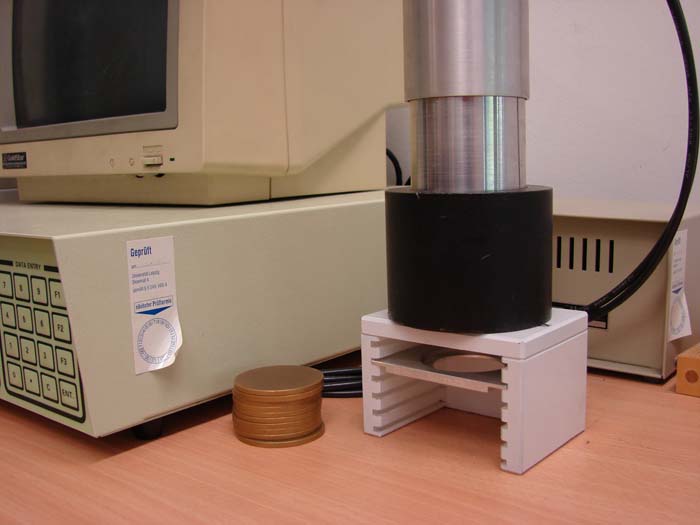ISO 10703 Gamma-Ray Spectrometry in Water Samples
The ISO 10703 standard is a critical protocol used to analyze gamma-ray spectrometry of water samples, providing accurate and reliable data on radionuclide concentrations. This service is essential for ensuring compliance with regulatory standards set by environmental protection agencies worldwide.
Waterborne radionuclides are often the result of nuclear testing, industrial activity, or natural sources such as soil erosion and weathering. Detecting these elements in water samples allows for effective monitoring and mitigation strategies to be implemented promptly. The ISO 10703 method specifically targets radionuclides that emit gamma radiation, which include isotopes like technetium-99m (Tc-99), iodine-131 (I-131), strontium-90 (Sr-90), and cesium-137 (Cs-137).
The process begins with the collection of water samples, which should be representative of the area being monitored. Samples are typically filtered to remove particulate matter and then stored in appropriate containers for transport to our laboratory. Upon arrival, samples undergo rigorous quality checks before analysis.
The core instrument used in this service is a high-purity germanium (HPGe) detector coupled with a multichannel analyzer. This setup ensures precise measurement of gamma-ray energies emitted by the radionuclides present in the sample. Precautions are taken to minimize background noise and interference from other radiation sources.
The method involves several steps, including calibration of the HPGe detector against known standards, preparation of the water samples for analysis, acquisition of spectra data, and subsequent processing and interpretation of results. The final output is a comprehensive report detailing the concentration levels of each targeted radionuclide detected in the sample.
Given its importance in environmental monitoring and regulatory compliance, this service plays a vital role in safeguarding public health and protecting natural resources from potential contamination risks associated with radioactive materials.
Applied Standards
| Standard Number | Description |
|---|---|
| ISO 10703-1:2015 | Method for the determination of radionuclides in water by gamma-ray spectrometry - Part 1: General principles and quality assurance. |
| ISO 10703-2:2015 | Method for the determination of radionuclides in water by gamma-ray spectrometry - Part 2: Determination of specific radionuclides. |
The ISO standards mentioned above provide detailed guidelines on how to perform gamma-ray spectrometry according to best practices, ensuring consistent and accurate results across different laboratories. Compliance with these standards is crucial for maintaining credibility in the field of environmental monitoring and nuclear safety.
Eurolab Advantages
Our expertise lies in delivering high-quality analytical services tailored specifically towards your needs. With years of experience working within this sector, we understand that accurate data is paramount when making informed decisions about water quality and compliance matters.
- Affordable pricing without compromising on precision or reliability.
- Quick turnaround times to ensure timely delivery of results back to you.
- Comprehensive reporting with detailed explanations for every finding made during the analysis process.
- Access to cutting-edge technology and methodologies, ensuring our analyses are state-of-the-art.
We pride ourselves on being able to provide not just a service but also peace of mind knowing that your samples have been handled by professionals who adhere strictly to international standards. Whether you're dealing with routine testing or special projects requiring more extensive analysis, trust Eurolab for all your gamma-ray spectrometry needs.
Quality and Reliability Assurance
- All staff members undergo rigorous training programs focusing on the latest techniques in gamma-ray spectrometry.
- We maintain strict quality control measures at every stage of sample handling, preparation, and analysis.
- Regular calibration and validation of all equipment used ensures consistency across all tests conducted here.
- A robust system is in place to trace any discrepancies found during the testing process back through each step until root causes are identified and addressed.
Our commitment to excellence extends beyond just adhering to ISO standards; it encompasses continuous improvement efforts aimed at enhancing our capabilities even further. By choosing Eurolab for your gamma-ray spectrometry needs, you can be confident that every aspect of the service will meet or exceed expectations set forth by regulatory bodies.





